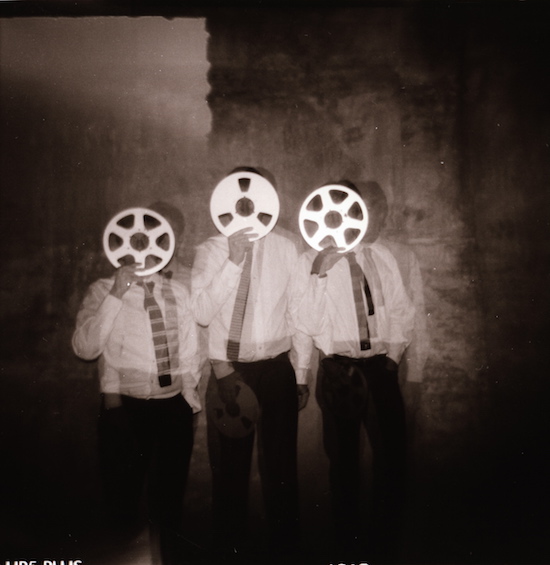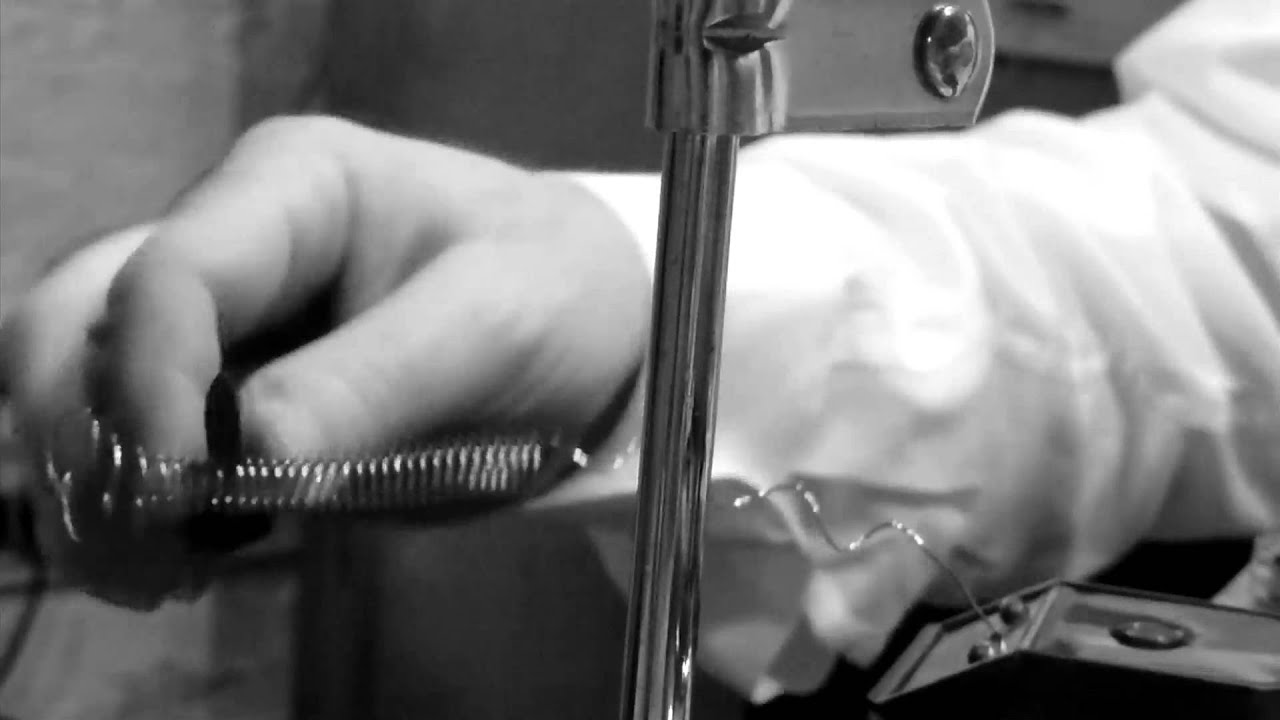In the late 1950s, Daphne Oram and a few close co-conspirators began pushing tape machines from BBC studio to BBC studio, late in the evening, when everyone else had gone home. They would gather their booty in a single room and work into the night, cutting and splicing and feeding effects into the mix. Oram dreamed of having a proper experimental electronic music studio, a British equivalent to Pierre Schaeffer’s GRM in Paris or Karlheinz Stockhausen’s WDR in Cologne. After months of petitioning her superiors, finally, her wish, it seemed, had been granted. They called it the BBC Radiophonic Workshop.
But something went wrong. As Delia Derbyshire would later complain in an interview with John Cavanagh for Radio Scotland, the early workshop was the site of a struggle between music and drama "- and drama won". Everything they produced was to be subordinated to programme needs. It is for this reason that Robert Worby, the composer and broadcaster, tells me most of the music that came out of the BBC Radiophonic Workshop "was compositionally very poor. There were twee little tunes made on milk bottles for schools programmes and things. But it certainly wasn’t the GRM or the WDR. Daphne Oram had the integrity to leave in 1959 because the music was rubbish."
A few years short of half a century later, in 2001, another group of BBC radio producers began using their downtime to make electronic music in a room at Broadcasting House. Felix Carey, Iain Chambers and Philip Tagney started up their own ‘Saturday Club’, meeting once a month to compose a piece of music in a day using broadly the same equipment that had once inspired Oram.
"The BBC was about to be digitised," Chambers tells me, "but at that point every producer had a Studer tape machine in their office. It was mostly redundant, but it was there. There was also a workshop, a self-operated studio where there was a really decent sounding mic in a room, and in the other room, tape machines – two of them – and effects, and things like that. So you were able to do interesting things."
Together they declared "out with plug-ins, out with synthesisers; in with real processes. We got into this thing of making the sounds yourself out of nothing." They would work tirelessly for a day – planning, recording, editing and modulating – and then send the results to their friend Worby, presenter of such Radio 3 contemporary music shows as Cacophony Now and Hear And Now.
"Robert was certainly listening in on our activities," Tagney claims.
"And was very approving," adds Chambers.
The early trio of Carey, Chambers and Tagney had largely worked on their own pieces, occasionally dipping into covers of pop songs like ‘Jealous Guy’ and the Steve Miller Band’s 1983 hit, ‘The Joker’. In 2005, they succeeded in integrating their day jobs and weekend activities after a couple of successful pitches to Radio 3’s Between The Ears. The group produced 20-25-minute musique concrète tone poems devoted to the Gateshead car park made famous by Mike Hodges’ Get Carter and radiophonic psychodramas narrated by Peter Blegvad of Slapp Happy and National Health.
One early gig took them to Hungerford where they would preface each song with a short recorded introduction by a friend from the Beeb with a knack for doing old-style radio announcer voices. Worby was struck by how "extremely radiogenic" this conceit was. "To present a concert where you’ve got presentation, but the presentation isn’t actually spoken by anybody seemed to me like a radio programme being transmitted to a live audience," he told me.
Before long Worby would join the group, making up a quartet for performances of John Cage’s ‘Williams Mix’ at the Cut & Splice festival in 2005 and ‘Fontana Mix’ at the Tate Modern’s Long Weekend in 2006. They called themselves Langham Research Centre, with a nod to Raymond Scott’s Manhattan Research Inc., after Langham Place, the W1 address of their workplace. They would become a kind of Radiophonic Workshop Rebel Alliance, imagining an alternative history in which Oram’s dream had come true and music had been allowed free rein at the original workshop.
Between them, in fact, Worby and Cage would be instrumental in realising this SF alter-destiny, with the former having something of a precedent for the group’s activities. At the end of the 1980s, Worby had found himself in New York, playing organ for The Mekons. Over the preceding months he had spent considerable time working on a realisation for Akai sampler, Juno-60 and DX7 synthesisers of ‘Fontana Mix’, Cage’s pioneering 1958 work for magnetic tape, and taking it on a tour around the UK. Having heard that Cage’s number was in the New York City telephone directory, he decided to call the venerable composer up, out of the blue.
"I explained that I was in New York and I’d made a realisation of ‘Fontana Mix’ and I’d like to come over to talk about it," Worby recalled.
"Come over now," said Cage.
"Won’t I be disturbing you?"
"I’m disturbed all the time, it won’t make any difference."
So Worby ended up spending the afternoon with Cage and his partner, the choreographer Merce Cunningham, drinking tea and chatting away amiably. But when it came to talking about Worby’s version of ‘Fontana Mix’, Cage looked at his guest quizzically and said: "Why are you doing this? I made this piece in 1958! Get on with your own work." Worby remained undeterred, and a year later he would meet the American composer again, this time working together intensively over ten days at the Huddersfield Contemporary Music Festival.
This longstanding engagement with the American experimental tradition is something that Worby brings to the table. He saw the potential in the indeterminate works of the post-war years to "inform our compositional practice and our performance practice. We wanted to present musique concrète so that people could experience the whole process," he tells me. "If you see Cage working with Cunningham in the 50s and 60s, they turn up to a venue and get whatever resources they’ve got – tape machines, oscillators, shortwave radios – and start setting up and doing a gig in this very pragmatic way."
Alongside this, each member of the Langham Research Centre brings something very particular. Before joining Radio 3, Chambers made melodic techno, while Carey, a skilled pianist, had played Fender Rhodes for Jamie Lidell. "Whenever we set Felix loose on one of our pieces," Chambers tells me, "there’s always some quite interesting chords coming back."
Tagney studied music, doing his postgrad at the University of Sussex, but for a long time felt paralysed as a composer. Listening to the abstruse, hyper-complex scoring of Birtwistle or Boulez, he thought: "I can’t compete with this stuff – and I don’t want to." It was the cut and splice of radiophonic technique that broke the deadlock for him.
Langham Research Centre go about things in much the same manner, with much the same pool of instruments. "We’ve set ourselves a frame to use that sound-world for our new music," Chambers explained. "It’s a creative restriction."
It’s also allowed them to bring to life works that might otherwise have never seen performance. Christian Wolff’s For Magnetic Tape II sat in a drawer for 60 years, completely unknown and undocumented, until Langham Research unearthed it for the Huddersfield Contemporary Music Festival in 2014. Wolff’s reaction was just as mystified as Cage’s was 25 years earlier. "He was genuinely grateful that we’d gone to all the effort of doing the piece and putting it on live and all that," Worby recalled. "But he was like, I’m doing this now. It’s interesting to hear what it sounded like, but so what?"
So why, I ask, have you so persistently ignored the advice of Cage and Wolff and continued to explore these classic electronic works of the past?
"Curiosity," Worby insisted. "Driven crazy by curiosity."
"I also think," Tagney chipped in, "that it’s about trying to play some good music."
Langham Research Centre perform works by John Cage and Christian Wolff at the Zero Wave night at Fiddler’s Elbow in London tonight, starting at 7.30 pm; for full details and tickets, head to their website



